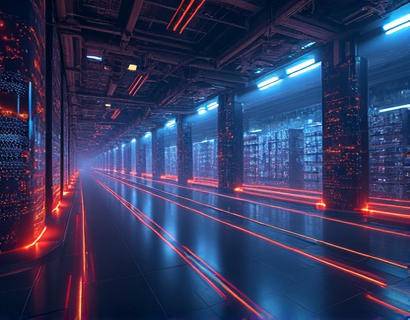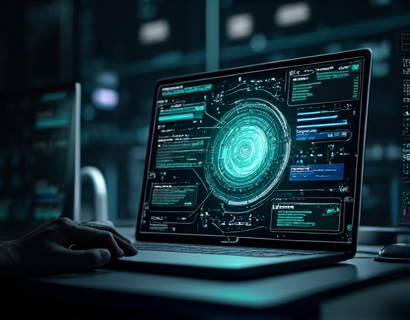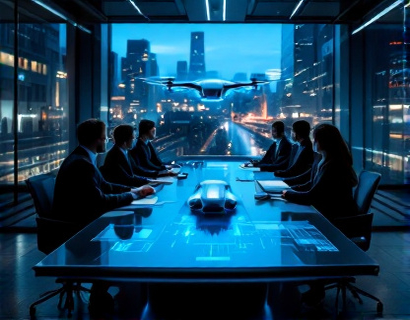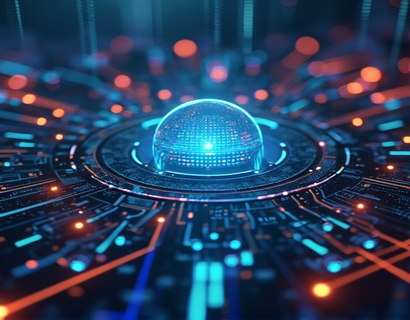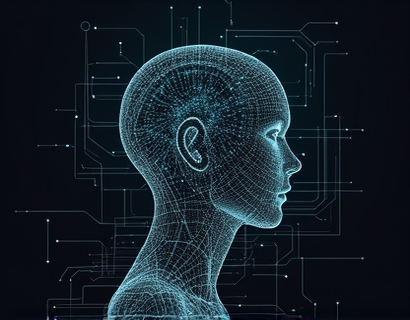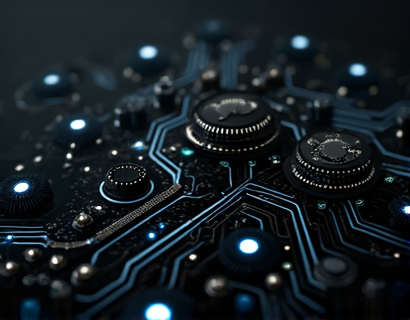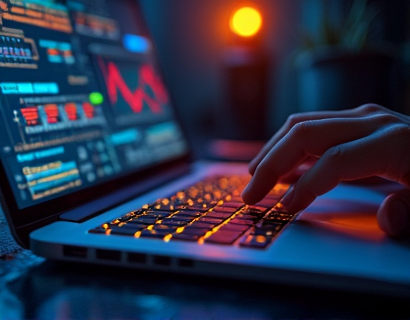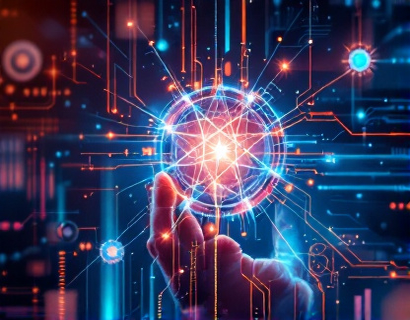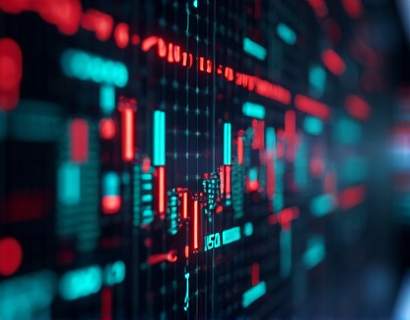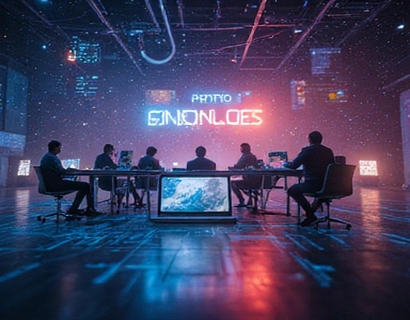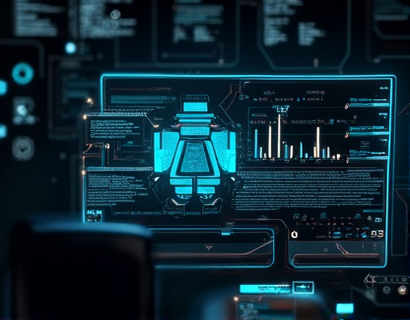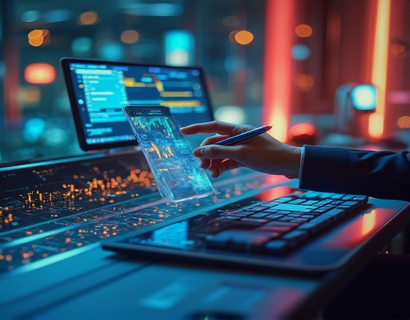Decentralized AI Meets Crypto: Transforming Digital Solutions for the Next Generation
The convergence of artificial intelligence (AI) and cryptocurrency is reshaping the digital landscape, paving the way for innovative solutions that promise to enhance user experiences and streamline processes across various sectors. As we delve into the realm of decentralized AI-powered ecosystems, it becomes evident that the integration of these technologies is not merely a trend but a transformative movement that holds the potential to redefine how we interact with digital solutions.
The Rise of Decentralized AI
Decentralized AI refers to the deployment of artificial intelligence algorithms and models across a distributed network rather than relying on a centralized server. This approach enhances security, privacy, and accessibility, allowing users to benefit from AI capabilities without the risks associated with centralized data storage. By leveraging blockchain technology, decentralized AI systems can ensure data integrity and transparency, making them more trustworthy and resilient against manipulation.
Understanding Cryptocurrency's Role
Cryptocurrency serves as the backbone of many decentralized applications (dApps) and ecosystems. It provides a secure and efficient means of transaction, enabling users to engage with AI-driven services without the need for traditional banking systems. The use of cryptocurrencies in decentralized AI applications facilitates microtransactions, incentivizes user participation, and fosters a collaborative environment where users can contribute to the development and improvement of AI models.
Transforming Digital Solutions
The integration of decentralized AI and cryptocurrency is revolutionizing various digital solutions, from finance to healthcare, education, and beyond. Here are some key areas where this transformation is taking place:
1. Financial Services
Decentralized finance (DeFi) is one of the most prominent applications of cryptocurrency and AI. By utilizing AI algorithms, DeFi platforms can analyze vast amounts of data to provide users with personalized financial advice, risk assessments, and investment strategies. Additionally, smart contracts enable automated transactions, reducing the need for intermediaries and lowering costs.
2. Healthcare
In the healthcare sector, decentralized AI can enhance patient care by providing real-time data analysis and predictive modeling. AI algorithms can analyze patient data to identify trends, predict outcomes, and recommend personalized treatment plans. By utilizing blockchain technology, patient data can be securely stored and shared, ensuring privacy while enabling healthcare providers to access critical information when needed.
3. Education
Decentralized AI can also transform the education sector by providing personalized learning experiences. AI-driven platforms can analyze student performance and learning styles to tailor educational content, ensuring that each student receives the support they need. Furthermore, blockchain technology can be used to verify credentials and achievements, creating a transparent and trustworthy system for educational institutions.
4. Supply Chain Management
In supply chain management, decentralized AI can optimize logistics and inventory management. By analyzing data from various sources, AI algorithms can predict demand, identify inefficiencies, and recommend improvements. Blockchain technology can enhance transparency and traceability, allowing stakeholders to track products from origin to destination, ensuring quality and compliance.
Benefits of Decentralized AI-Powered Ecosystems
The combination of decentralized AI and cryptocurrency offers numerous benefits that can enhance user experiences and drive engagement:
- Enhanced Security: Decentralized systems reduce the risk of data breaches and cyberattacks, as there is no single point of failure.
- Increased Privacy: Users have greater control over their data, allowing them to choose what information to share and with whom.
- Lower Costs: By eliminating intermediaries, decentralized AI solutions can reduce transaction fees and operational costs.
- Greater Accessibility: Decentralized platforms can reach underserved populations, providing access to services that may have been previously unavailable.
- Community-Driven Development: Users can actively participate in the development and improvement of AI models, fostering a sense of ownership and collaboration.
Challenges and Considerations
While the potential of decentralized AI and cryptocurrency is immense, there are also challenges that need to be addressed:
1. Regulatory Concerns
The regulatory landscape surrounding cryptocurrency and AI is still evolving. Governments and regulatory bodies are grappling with how to manage these technologies, which can create uncertainty for developers and users alike. Clear regulations are needed to ensure compliance while fostering innovation.
2. Technical Complexity
Building decentralized AI systems requires a high level of technical expertise. Developers must navigate the complexities of blockchain technology, AI algorithms, and decentralized networks, which can be a barrier to entry for many.
3. Data Quality and Bias
AI models are only as good as the data they are trained on. Ensuring data quality and mitigating bias is crucial for the success of decentralized AI applications. Developers must implement robust data governance practices to address these issues.
The Future of Decentralized AI and Cryptocurrency
As we look to the future, the integration of decentralized AI and cryptocurrency is poised to accelerate. Emerging technologies such as edge computing, the Internet of Things (IoT), and 5G connectivity will further enhance the capabilities of decentralized systems, enabling real-time data processing and analysis.
Moreover, as more individuals and organizations recognize the benefits of decentralized solutions, we can expect increased adoption and investment in these technologies. This shift will not only drive innovation but also create new opportunities for collaboration and growth across various sectors.
Conclusion
The intersection of decentralized AI and cryptocurrency is transforming the digital landscape, offering innovative solutions that enhance user experiences and streamline processes. As we continue to explore the potential of these technologies, it is essential to address the challenges and considerations that come with them. By fostering collaboration, innovation, and responsible development, we can unlock the full potential of decentralized AI-powered ecosystems and pave the way for a more connected and efficient digital future.




